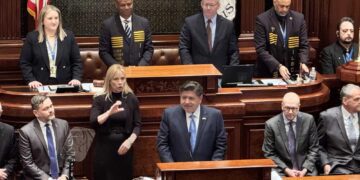Creating a new federal tax credit is the wrong way to promote school choice. Neal McCluskey points out the problem in the new school choice bill put forward by Sen. Ted Cruz (R-Texas) and Rep. Bradley Byrne (R-Ala.):
School choice is about individualization and freedom, and almost certainly that is what DeVos, Cruz, and Byrne want. But federal initiatives are a terrible way to deliver that. The reality is that what the feds fund, even indirectly, they inevitably want to control. DeVos, Cruz, and Byrne specifically acknowledge that historical reality in federal education policy. They write, “A series of administrations on both sides of the aisle have tried to fill in the blank with more money and more control, each time expecting a different result.” Note that the primary vehicle for that control, the Elementary and Secondary Education Act, started aimed just at funding low-income districts. It eventually became the uber-controlling No Child Left Behind Act.
DeVos, Cruz, and Byrne are looking to skirt the control problem, sticking with tax credits instead of vouchers, and letting states opt in. But not only is this unconstitutional—taxes are authorized to execute specific, enumerated powers, not to lightly engineer state policy—it won’t, ultimately, prevent encroaching federal control. If enacted, the credit would spur people to demand their states participate, and as more schools benefited from federally connected scholarships all schools would be financially pressured to use them. But the federal government will have the power to decide which state programs are or are not eligible, and on what grounds. As Corey DeAngelis and others have noted, what happens when, instead of a President Trump, we have a President Sanders or Harris and they don’t like the policies of religious schools, or maybe how economics is taught? Suddenly lots of private schools and other options will be federally pressured to look very similar—shape up or credit eligibility goes away—and true choice will be curtailed.
Even the roll out of the proposal raises the specter of federal control. Though the great benefit of tax credits is they do not use government money, and hence are less prone to regulation than vouchers, DeVos, Cruz, and Byrne write that through their proposal they “are putting forward a historic investment in America’s students.” That sure sounds like the federal government is doing the funding, and what government funds it tends to control. Also, that Secretary DeVos is so prominent in the proposal release at least symbolizes not only federal intervention in education policy, but a strong connection to the executive—the dangerously regulatory—branch of the federal government.
[Neal McCluskey, “Even Something as Great as School Choice Should Not Be Federalized,” Cato Institute, February 28]







